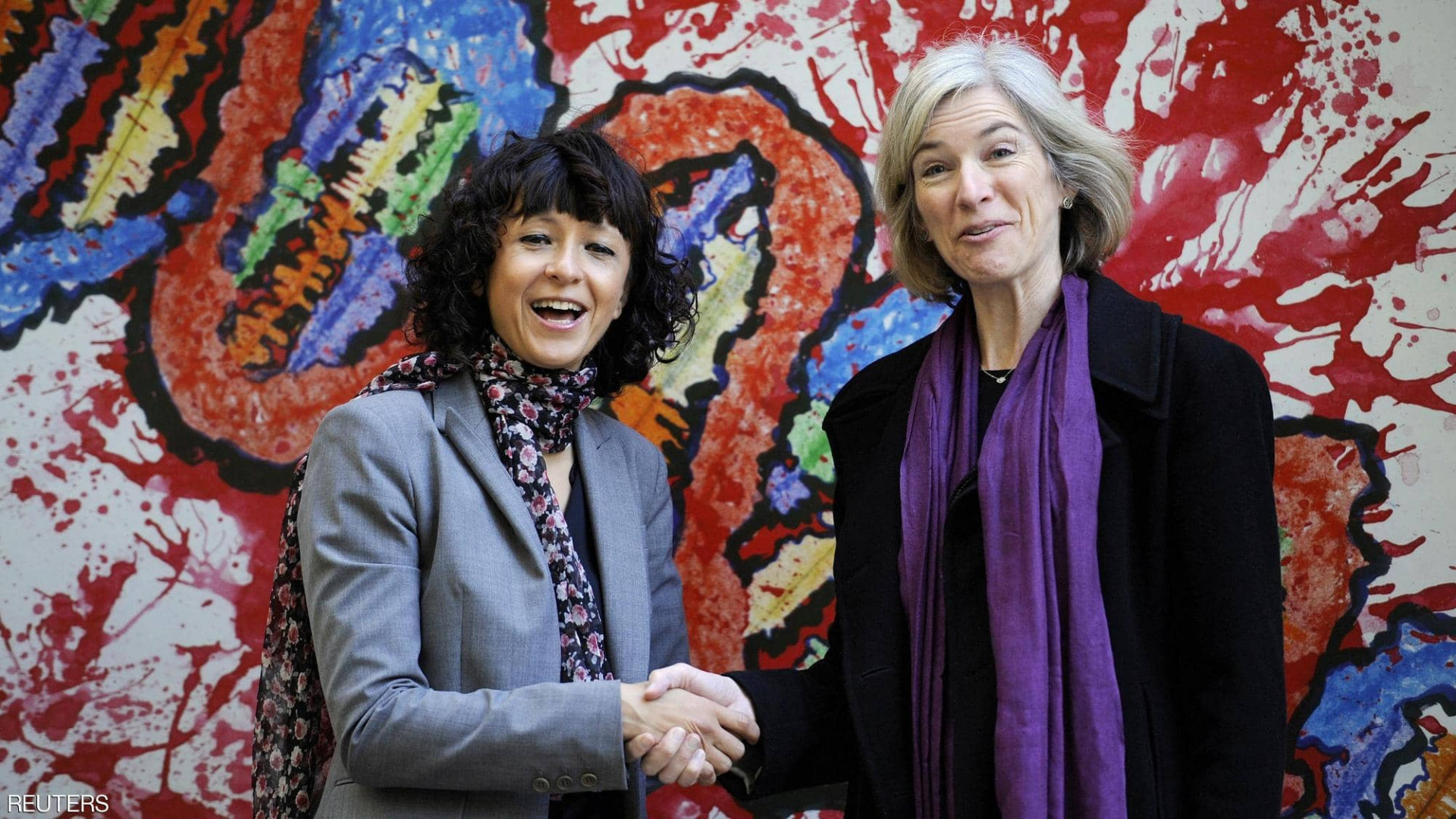Nobel Prize in chemistry awarded to two women for the first time

Shafaq news/ Two scientists have been awarded the 2020 Nobel Prize in Chemistry for developing the tools to edit DNA.
Emmanuelle Charpentier and Jennifer Doudna are the first two women to share the prize, which honors their work on the technology of genome editing.
Their discovery, known as Crispr-Cas9 "genetic scissors", is a way of making specific and precise changes to the DNA contained in living cells.
They will split the prize money of $1,110,400.
Biological chemist Pernilla Wittung-Stafshede, commented, “The ability to cut DNA where you want has revolutionized the life sciences."
Not only has the women's technology been transformative for basic research, it could also be used to treat inherited illnesses.
Prof Charpentier, from the Max Planck Unit for the Science of Pathogens in Berlin, said it was an emotional moment when she learned about the award.
"When it happens, you're very surprised, and you think it's not real. But obviously it's real," she said.
On being one of the first two women to share the prize, Prof Charpentier said, "I wish that this will provide a positive message specifically for young girls who would like to follow the path of science... and to show them that women in science can also have an impact with the research they are performing."
She continued, "This is not just for women, but we see a clear lack of interest in following a scientific path, which is very worrying."
During Prof Charpentier's studies of the bacterium Streptococcus pyogenes, she discovered a previously unknown molecule called tracrRNA. Her work showed that tracrRNA is part of the organism's system of immune defense.
This system, known as Crispr-Cas, disarms viruses by cleaving their DNA - like genetic scissors.
In 2011, the same year she published this work, Prof Charpentier began collaboration with Prof Doudna, from the University of California, Berkeley.
Together, they recreated the bacterium's genetic scissors in a test tube. They also simplified the scissors' molecular components so they were easier to use.
In their natural form, the bacterial scissors recognize DNA from viruses. But Charpentier and Doudna showed that they could be reprogrammed to cut any DNA molecule at a predetermined site, publishing their findings in a landmark 2012 paper.
Since the two scientists discovered the Crispr-Cas9 genetic scissors, their use has exploded. The tool has contributed too many important discoveries in basic research; and, in medicine, clinical trials of new cancer therapies are underway.
The technology also holds the promise of being able to treat or even cure inherited diseases. It is currently being investigated for its potential to treat sickle cell anemia, a blood disorder that affects millions of people worldwide.
Emmanuelle Charpentier was born in 1968 in Juvisy-sur-Orge, France. She obtained her PhD while at the Institute Pasteur in Paris and subsequently worked at scientific institutes in the US, Austria, Sweden and Germany - in addition to her native France.
Jennifer Doudna was born in 1964 in Washington DC but spent much of her childhood in Hilo, Hawaii. She was awarded her PhD by Harvard Medical School.